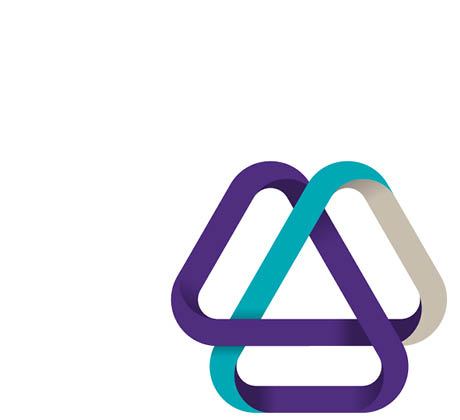-
Aviation Advisory
Our dedicated Aviation Advisory team bring best-in-class expertise across modelling, lease management, financial accounting and transaction execution as well as technical services completed by certified engineers.
-
Consulting
Our Consulting team guarantees quick turnarounds, lower partner-to-staff ratio than most and superior results delivered on a range of services.
-
Business Risk Services
Our Business Risk Services team deliver practical and pragmatic solutions that support clients in growing and protecting the inherent value of their businesses.
-
Deal Advisory
Our experienced Deal Advisory team has provided a range of transaction, valuation, deal advisory and restructuring services to clients for the past two decades.
-
Forensic Accounting
Our Forensic and Investigation Services team have targeted solutions to solve difficult challenges - making the difference between finding the truth or being left in the dark.
-
Financial Accounting and Advisory
Our FAAS team designs and implements creative solutions for organisations expanding into new markets or undertaking functional financial transformations.
-
Restructuring
Grant Thornton is Ireland’s leading provider of insolvency and corporate recovery solutions.
-
Risk Advisory
Our Risk Advisory team delivers innovative solutions and strategic insights for the Financial Services sector, addressing disruptive forces, regulatory changes, and emerging trends to enhance risk management and foster competitive advantage.
-
Sustainability Advisory
Our Sustainability Advisory team works with clients to accelerate their sustainability journey through innovative and pragmatic solutions.

-
 Asset management Asset management of the futureIn today’s global asset management landscape, there is an almost constant onslaught of change and complexity. To combat such complex change, asset managers need a consolidated approach. Read our publication and find out more about what you can achieve by choosing to work with us.
Asset management Asset management of the futureIn today’s global asset management landscape, there is an almost constant onslaught of change and complexity. To combat such complex change, asset managers need a consolidated approach. Read our publication and find out more about what you can achieve by choosing to work with us. -
 Internal Audit Maintaining Compliance with New EU Pension Directive IORP IIOn 28 April 2021, the Irish Government transposed IORP II (Institution for Occupational Retirement Provision), an EU directive on the activities and supervision of pension schemes, into law.
Internal Audit Maintaining Compliance with New EU Pension Directive IORP IIOn 28 April 2021, the Irish Government transposed IORP II (Institution for Occupational Retirement Provision), an EU directive on the activities and supervision of pension schemes, into law. -
 Risk, Compliance and Professional Standards FRED 82 – Periodic Updates to FRS 100 – 105The concept of a new suite of standards for the UK and Ireland, aligning with international financial reporting standards, was first conceived in 2002
Risk, Compliance and Professional Standards FRED 82 – Periodic Updates to FRS 100 – 105The concept of a new suite of standards for the UK and Ireland, aligning with international financial reporting standards, was first conceived in 2002 -
 Audit and Assurance Auditor transition: how to achieve a smooth changeoverAppointing new auditors may seem like a daunting task that will be disruptive to your business and a drain on the finance function. Nevertheless, there are a multitude of reasons to consider a change, including simply seeking a ‘fresh look’ at the business.
Audit and Assurance Auditor transition: how to achieve a smooth changeoverAppointing new auditors may seem like a daunting task that will be disruptive to your business and a drain on the finance function. Nevertheless, there are a multitude of reasons to consider a change, including simply seeking a ‘fresh look’ at the business.
-
Corporate Tax
Our Corporate Tax team is made up of more than 40 highly experienced senior partners and directors who work directly with a wide range of domestic and international clients; covering Corporation Tax, Company Secretarial, Employer Solutions, Global Mobility and Tax Incentives.
-
Financial Services Tax
The Grant Thornton team is made up of experts who are fully up to date in terms of changing and evolving tax legislation. This is combined with industry expertise and an in-depth knowledge of the evolving financial services regulatory landscape.
-
International Tax
We develop close relationships with clients in order to gain a deep understanding of their businesses to ensure they make the right operational decisions. The wrong decision on how a company sells into a new market or establishes a new subsidiary can have major tax implications.
-
Private Client
Grant Thornton’s Private Client Services team can advise you on all areas of financial, pension, investment, succession and inheritance planning. We understand that each individual’s circumstances are different to the next and we tailor our services to suit your specific needs.
-
VAT
Grant Thornton’s team of indirect tax specialists helps a range of clients across a variety of sectors including pharmaceuticals, financial services, construction and property and food to navigate these complexities.

Several of my colleagues have recently been commenting on the impact of Artificial Intelligence (AI) and Robotic Process Automation (RPA) on the workforce. Not only will it change the nature of our work on a day-to-day basis, it will also influence whom and for how long we work for the same organisation. This will affect the Not for Profit sector as well, as work patters change significantly over the next few years.
Over the past 100 years, the way we work has changed drastically. Gone are the days where the majority of the workforce were employed in primary and secondary activities. Advancements in technology have meant that machines have replaced people in many of these areas and the emergence of huge multinational firms has led to an inordinate growth in the number of people working in the third and charitable sector.
The expectations of workers are going to continue to change going into the future. Employees will want to work in an organisation that has purpose. They want their future organisation to be future thinking and sustainable, one that tackles the key social and environmental issues of our time. In order for organisations to continue to attract the best talent it is imperative that they make sure their goals and CSR (Corporate Social Responsibility) policies are aligned with employees’ goals and that they focus on sustainability in order to be an organisation where employees wish to work. This is an important point to bear in mind if you are in the Not for Profit sector and you are struggling to recruit staff in a full-employment economy – maybe you need to refresh your employee value proposition to attract these type of workers.
Employees will also expect lifelong growth in their future careers. They expect to be developed by their organisations and to be always learning no matter what their position. In order for organisations to keep up with their needs, they will have to offer employees constant opportunities to grow through blended learning programmes, funding further education and creating progression opportunities. For employees in the future, the concept of a “job for life” will not exist. People will wish to change jobs often, with the average person currently making 12 career changes in their life. Organisations will need to create excellent organisational cultures, provide work life balance and progression opportunities in order to encourage employee retention and minimise staff turnover rates.
Remote working is also set to become a key topic of conversation in the future when it comes to working. ‘Work Life Balance’ is becoming increasingly important to workers, with 34% of millennials saying that it is the top priority in a job, placing it over career advancement. Organisations within the Not for Profit sector will have to devise strategies that reflect both the employees and employers needs when it comes to working from home and remotely.
In conclusion, as technology advances and companies become geared towards satisfying employees’ desires as well as meeting the needs of clients and customers, it is imperative that companies in the Not for Profit sector start preparing for the future by anticipating future trends. They have to look at employee needs and consider what kind of strategies they could implement in order to ensure that they attract the best employees and have the highest level of retention, whilst reducing employee turnover to a manageable level.

















